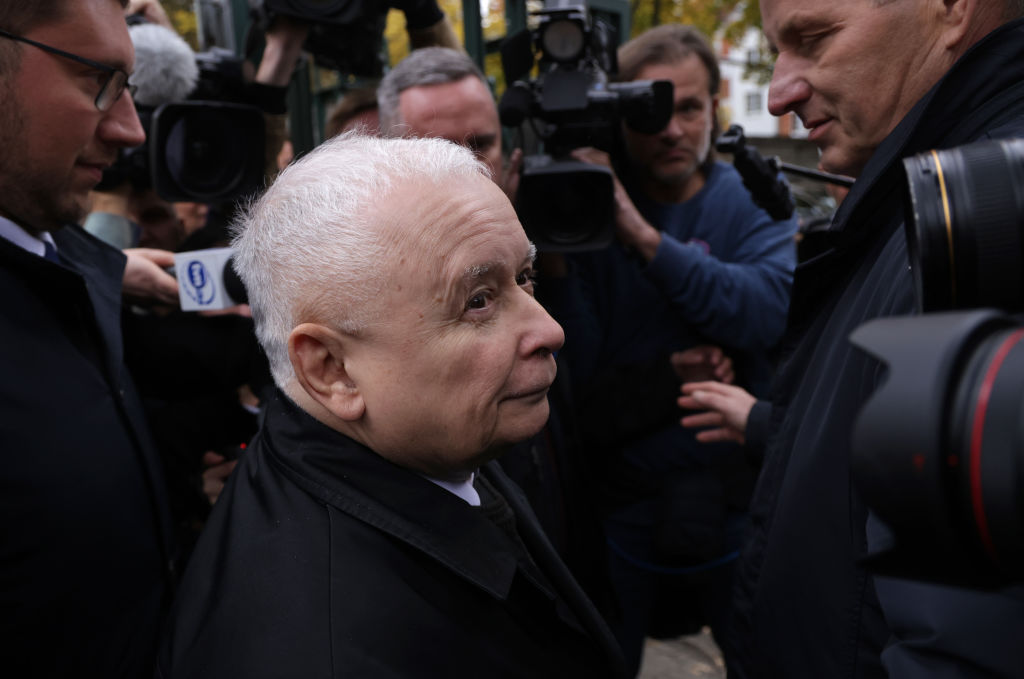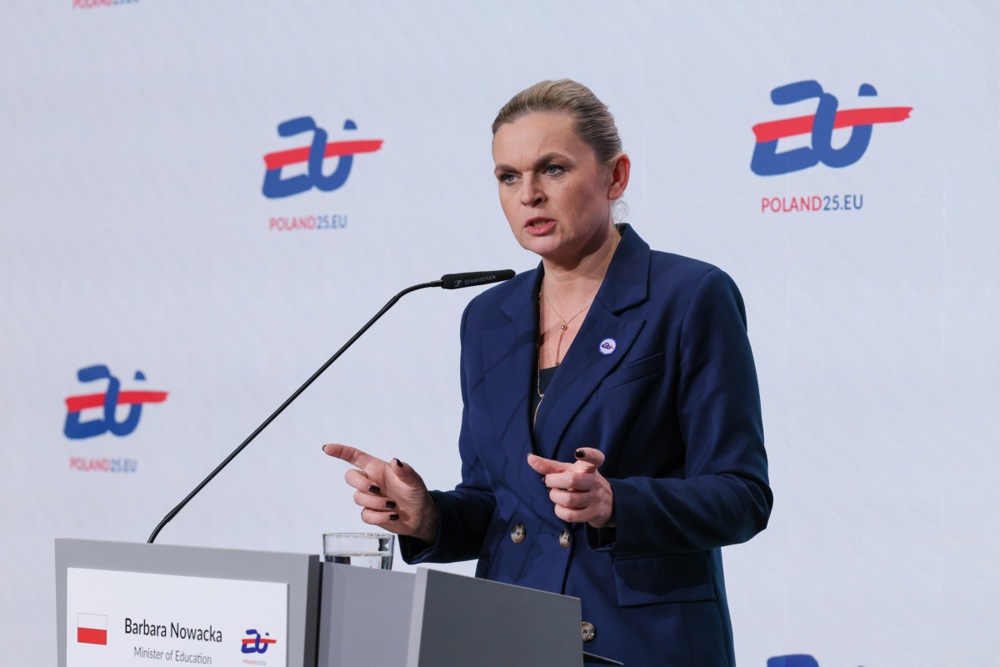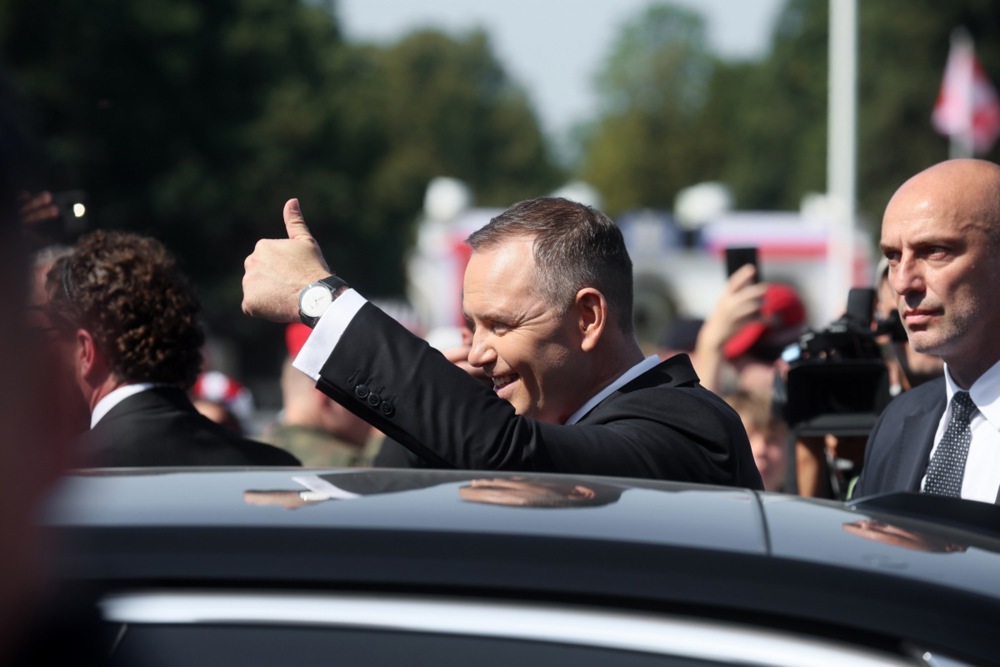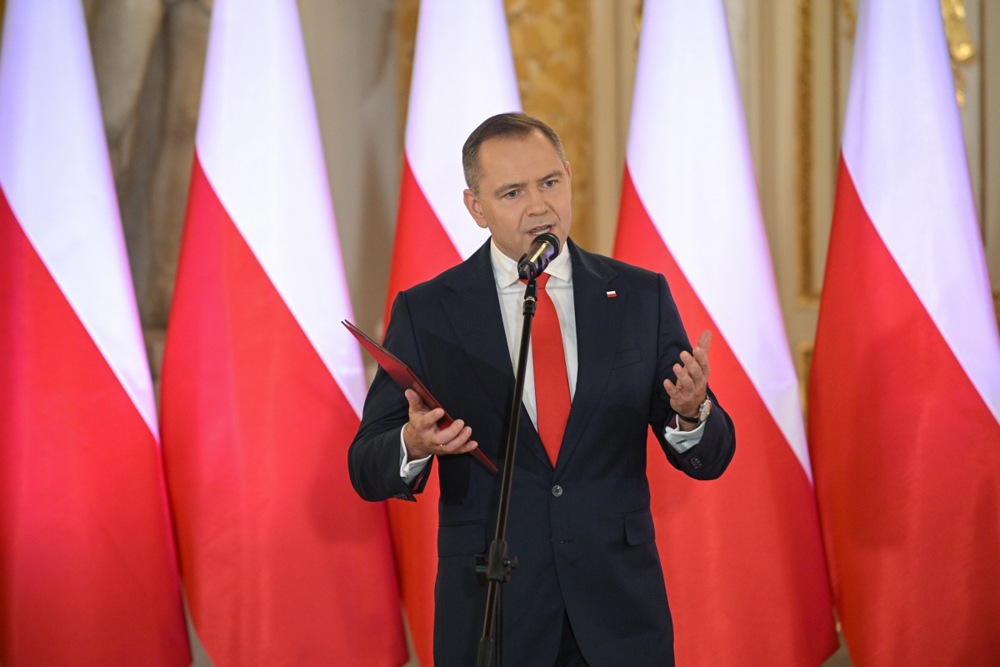Polish President Karol Nawrocki has vetoed legislation extending support for 1 million Ukrainian refugees living in Poland.
“President Nawrocki does not agree with the privileged treatment of citizens of other countries. That is why he has decided to veto the bill on assistance for Ukrainian citizens in its current form and will present his own legal proposals,” read a statement released by his chancellery on August 25.
The legislation in question, which was drafted by the centre-left coalition government led by Prime Minister Donald Tusk and passed by parliament in late July, would have extended until March 2026 various forms of assistance and protection granted back in 2022 in the aftermath of the Russian invasion of Ukraine.
The bill was approved by MPs from the ruling majority but was opposed by the two main opposition parties, the national-Conservative Law and Justice (PiS) and far-right Confederation (Konfederacja). Both had supported Nawrocki in this spring’s presidential election in which he defeated the government’s candidate, Rafał Trzaskowski.
“We remain open to providing assistance to Ukrainian citizens, that hasn’t changed,” said Nawrocki. “Russia is the perpetrator of this war, and Ukraine is the victim. But after three and a half years, our law should be amended.”
He argued that Ukrainian parents should only be allowed to receive child benefit if they were in work. That had, in fact, been mooted by the government’s candidate Rafał Trzaskowski during the election campaign.
“Child benefit should be available only to those Ukrainians who make the effort to work in Poland. The same goes for healthcare,” declared Nawrocki. “Poland first, Poles first. We should bring about social justice”, he added, echoing the messaging of his election campaign.
He also revealed that the alternative legislation he planned to propose would not only restrict benefits to Ukrainians but also ban the promotion of Ukrainian nationalist ideology associated with the late leader of the radical militant faction of the Organisation of Ukrainian Nationalists, Stepan Bandera.
Earlier this year, the PiS proposed legislation that would have placed “Banderism” alongside Nazism, Fascism and Communism as legally proscribed ideologies. It claimed followers of Bandera, who died in 1959, were responsible for the Volhynia massacre of more than 100,000 Polish civilians during the Second World War.
“To eliminate Russian propaganda and base our relations with Ukraine on mutual respect, I believe we should also include the prohibition of Banderism on our soil,” said Nawrocki, adding that he wanted Banderite symbols to be equated with Nazi and Communist ones.
Earlier in August, the display of black and red Ukrainian nationalist flags at a concert in Warsaw was condemned in Poland and the government announced it would be deporting the perpetrators.
A few days ago, Nawrocki vetoed legislation easing rules on building onshore wind turbines and freezing electricity prices for households, but then submitted to parliament his own bill that would reduce energy prices for households.
He has also signalled that he was unwilling to help the government with the passage of legislation that would give the government more powers to increase excise charges on alcohol and tobacco.
The President’s veto of any legislation can be overturned by parliament if it can produce a qualified three-fifths majority for so doing. The present ruling coalition, though, is more than 30 seats short of having such a majority.





